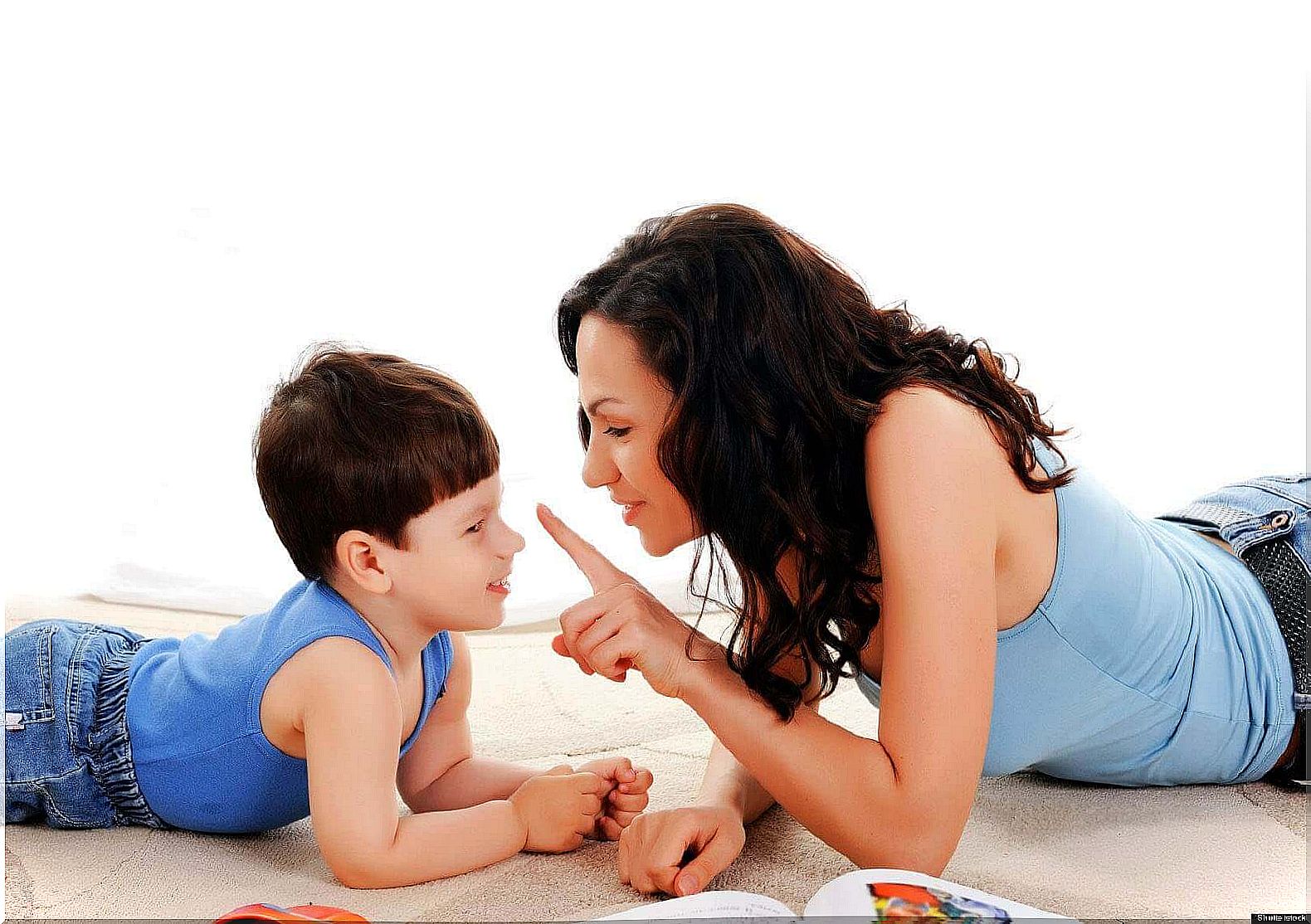How Can You Say No To Children In A Positive Way?

Positive communication with your child not only promotes pleasant coexistence. You also enable your offspring to have better social relationships with other children. So today we have a few tips for you to learn how to say no in a positive way .
There are various positive parenting models that aim for a healthy bond through constructive and loving communication.
It is much easier to teach children how to behave properly when we use as few negatives as possible in everyday life. Experts assume that this will also achieve much better results than if you constantly say no to everything: “Don’t do that!”, “Don’t run!”, “Don’t touch that!” …
Maybe the no is in your mouth all the time and it not only makes you feel uncomfortable, but also quickly loses patience and becomes frustrated.
In addition, you must not forget that your children will imitate you and will always say no. For this reason, it is important to know other techniques for responding in a positive way , even if you want to keep children from doing something.
Wouldn’t you be frustrated yourself if you always got a “no” for an answer? The child is limited by this but does not know why. So it cannot see a constructive perspective or learn to find a solution to difficulties. If you just say no without giving an explanation, your child will not learn to think for themselves.
Saying no in a positive way: tips for parents

If you keep repeating the word “no”, you are giving your child a negative message. However, that doesn’t mean that you always have to say “yes” or accept everything. On the contrary, it’s about expressing yourself positively in order to achieve what you want.
It is important to find a balance in all decisions. In this way you promote your child’s awareness and responsibility for his or her actions, while also learning the consequences of this.
It will become more self-reliant and independent and can also develop a healthy sense of self-worth. In addition, your child will have fewer fits of anger, which of course also benefits you a lot.
So try not to keep saying no, as there are more effective alternatives. Only keep this word for extreme cases! The following tips can help you to achieve your goal in a positive way:
- Always give your child an alternative. Don’t just tell them that they can’t do something, suggest that they do something else.
- Explain to your child what could happen if they continue this way. Children need to learn to understand the consequences of their actions.
- Draw up some rules of conduct that your child must adhere to and explain why this is the case. Do not definitely ban all sweets or the television, but explain the consequences of certain things and why they are restricted. This way it learns better to control itself.
- Postpone his request to another time. For example, if your child wants to play with you but you don’t have the time, explain it to them. Tell them that you will play with them at another time and keep your promise!
Talk to other children in a positive way
Positive parenting strategies have various advantages. A very important aspect is the interaction with other children (siblings, cousins, classmates, friends …).
If the child experiences a harmonious family life and participates in constructive communication, they will also use this model to get in touch with their peers. So it can build good relationships through play and through healthy behavior.

It also helps children get used to rejecting aggressive behavior at school. If you see that a classmate is not reacting correctly, you will not respond to him, or maybe even ask: “What is the matter with him?”, “Why is he doing this?”
You can also use these questions to think about certain situations with your child, although of course you have to take your child’s age into account. During the conversation you can give him tools to understand things better and, consequently, to be able to act correctly.
Show him how to build positive relationships with other children. Because this way it can definitely put an end to the constant negativity and achieve a friendly environment. This will also make learning processes easier for him.









